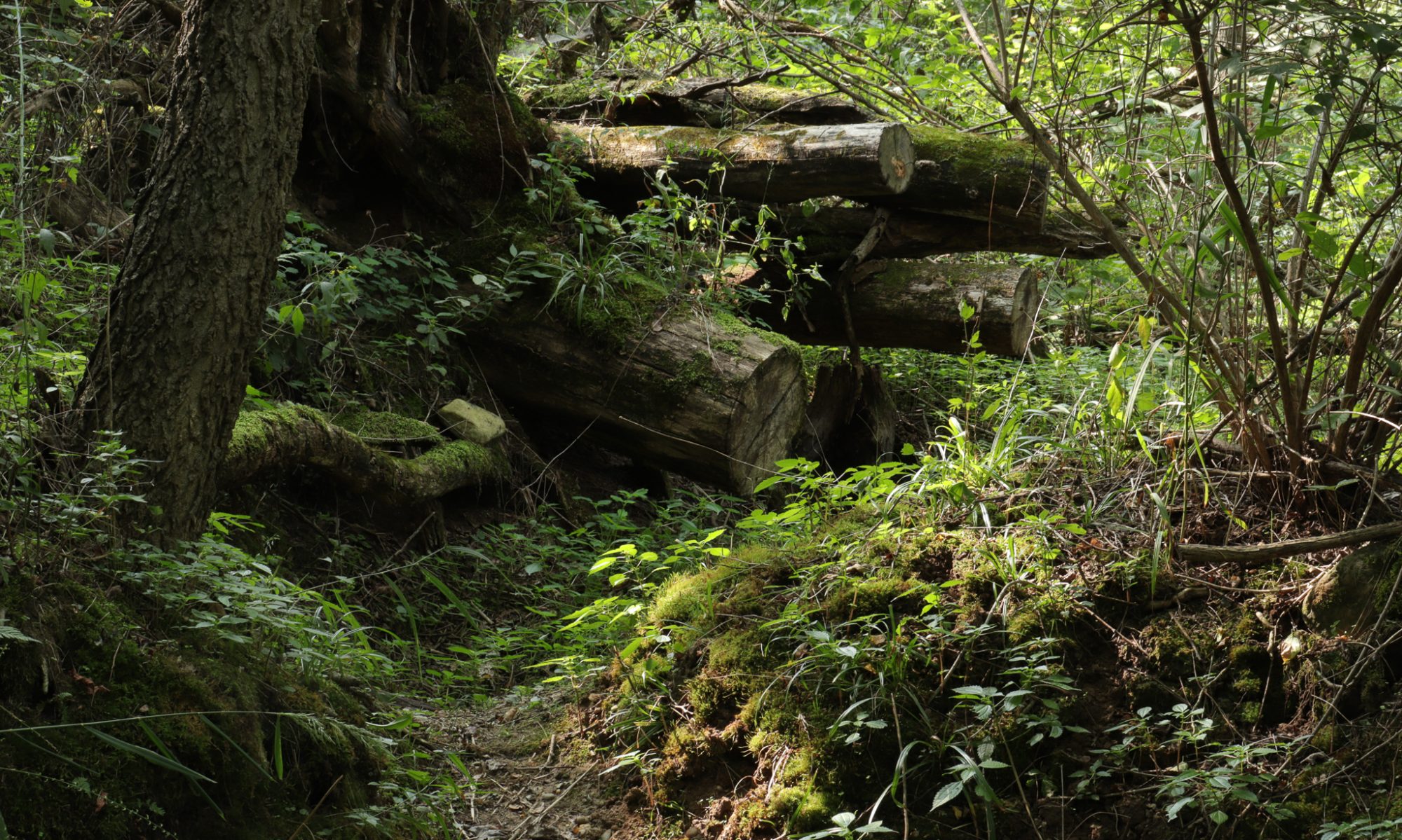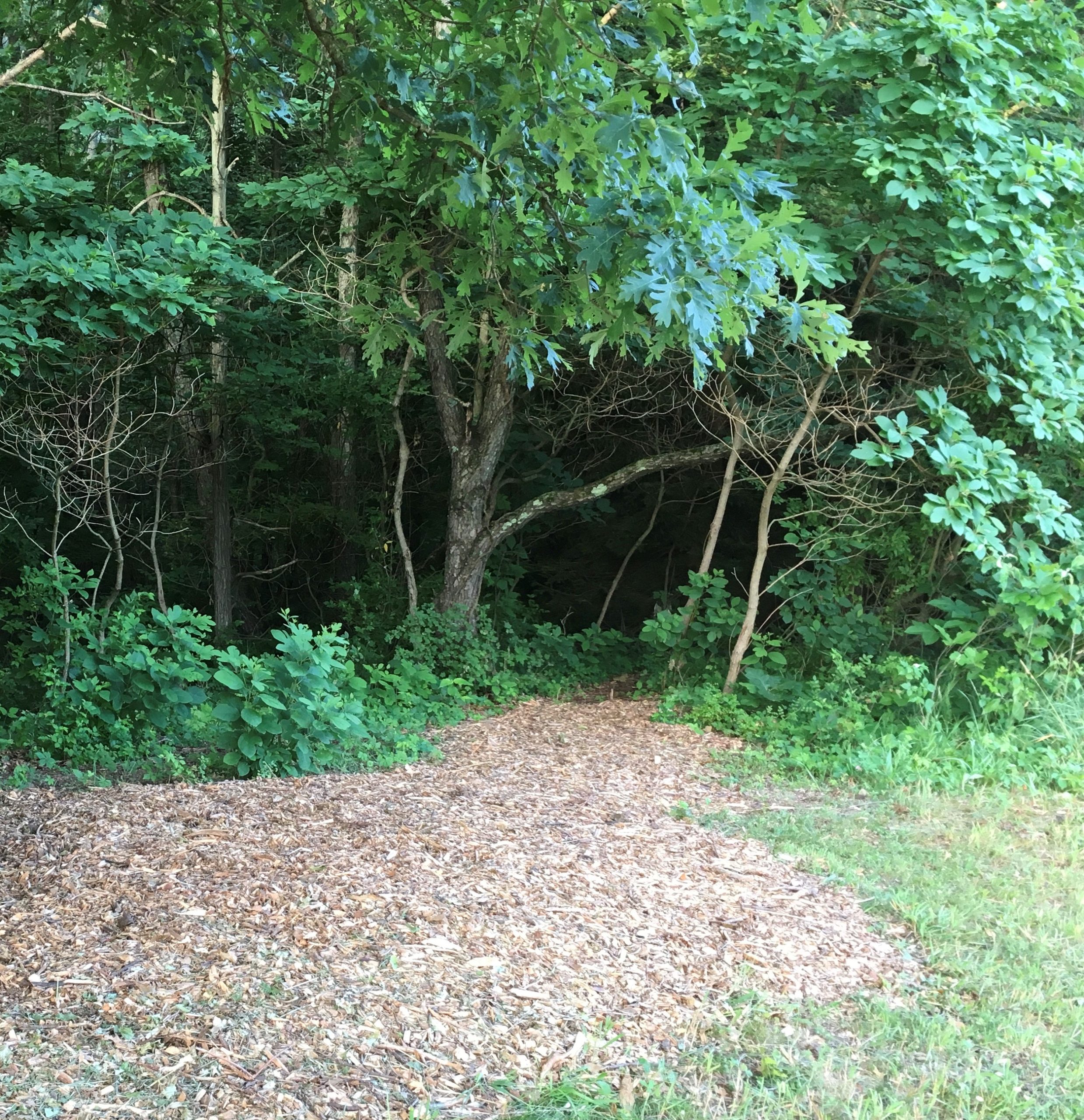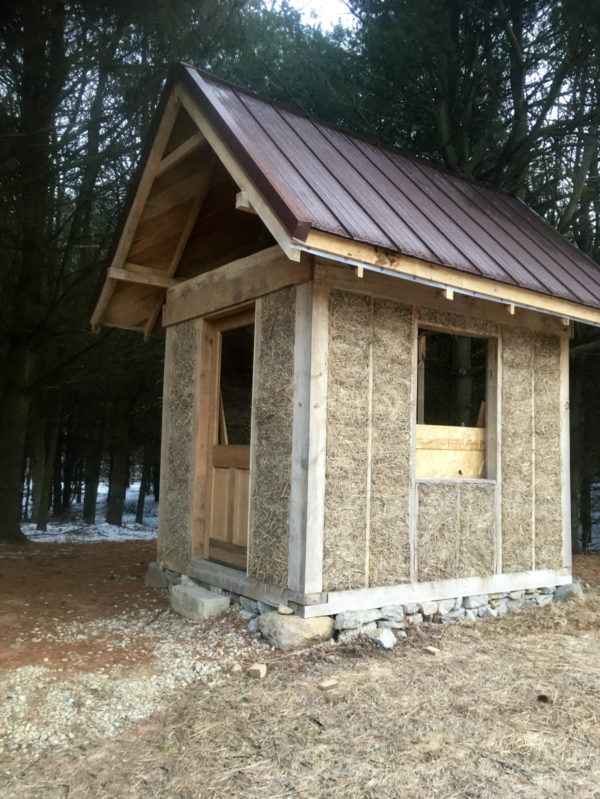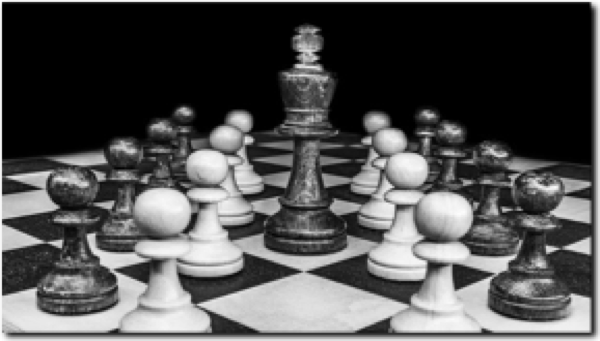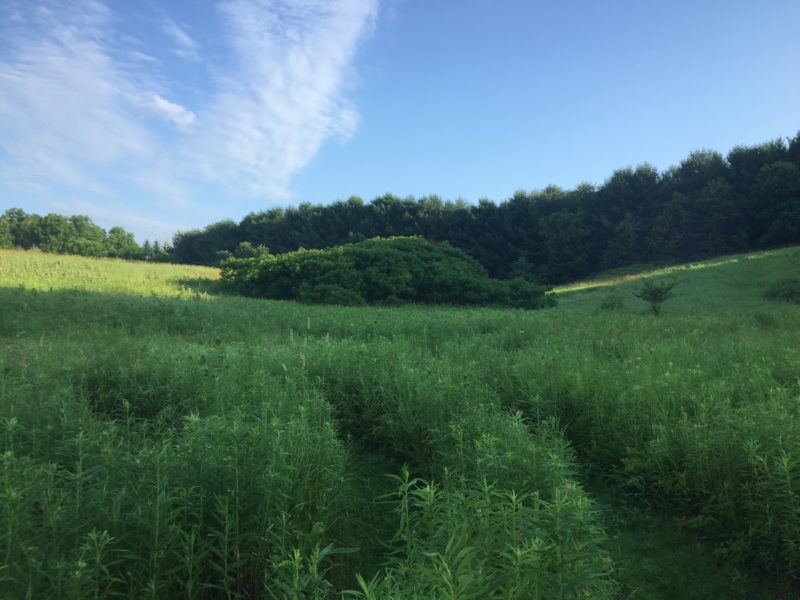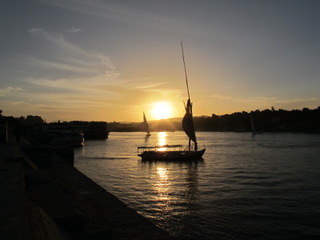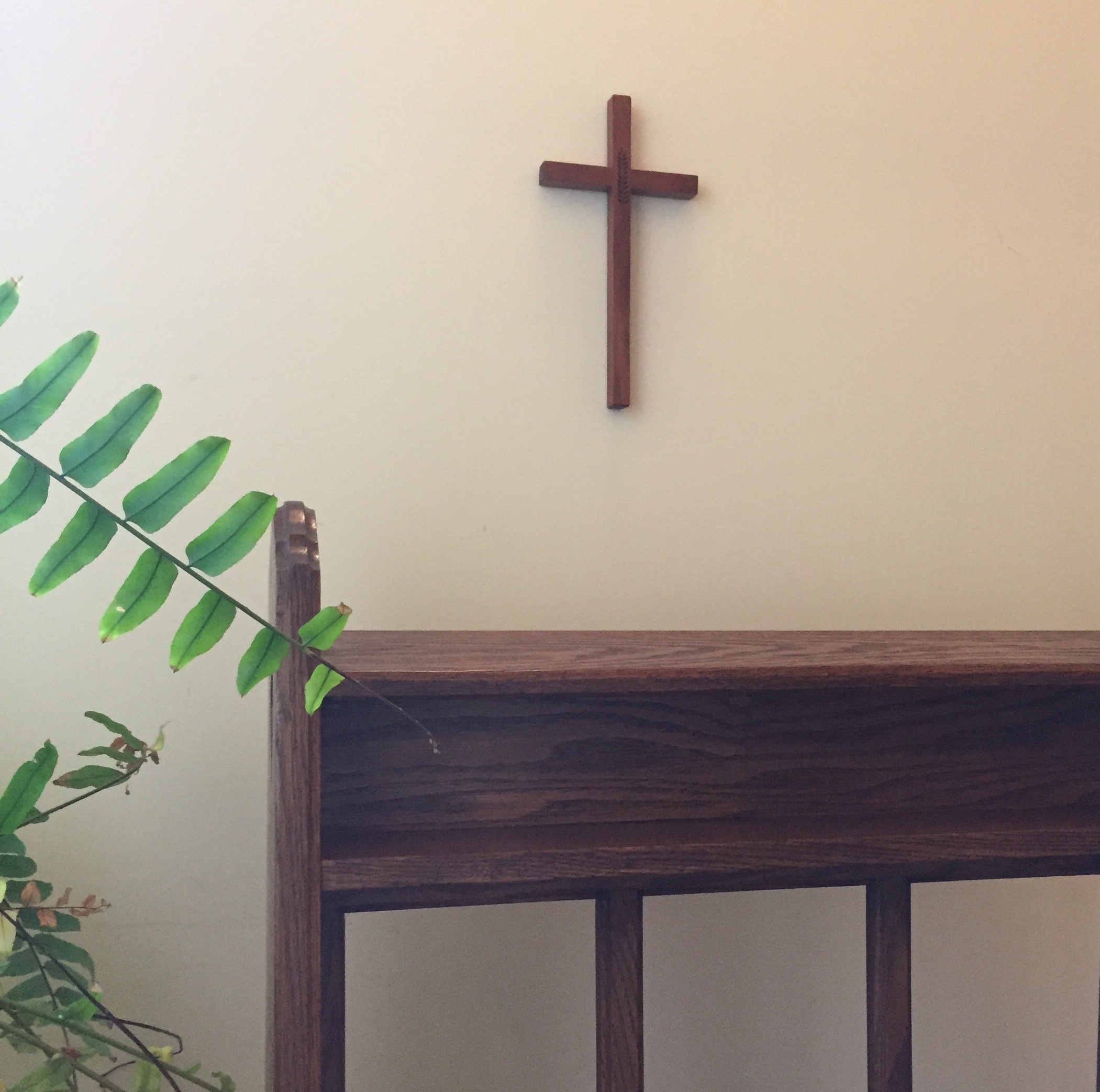We are creating weekly video prayers during Lent. Each video willl have a short reading or scripture, and time of quiet with video of a Hermitage scene, and a closing prayer.
Whole and Holy: 2020 EcoTheology Retreats, by Naomi Wenger
In 2020, the Ecosystems Discernment Committee (EDC) of the Hermitage Board will host three day-long retreats focus- ing on the theological implications of caring for Earth. In his 2016 encyclical, Laudato Si, Pope Francis declares that, “Rather than a problem to be solved, the world is a joyful mystery to be contemplated with gladness and praise.” In the midst of a climate crisis and the immense damage that humans have done to our Earth home, we must learn first that we are one with Earth and that it is “good” so that we can properly care for it. From mass extinctions to rising car- bon saturation of the atmosphere, we are implicated in some fairly big problems. But, as Pope Francis reminds us, there is another view, one that can rightfully motivate us to action on behalf of the planet. If we treat the place where we live as holy, we are already on the way to participating in its healing and wholeness. As Christ-followers, our work on
We invite you to come and explore with us the ecological and theological framework for tending and keeping Earth (Genesis 2:15), and examine our resistances to act on behalf of our planet.
The first retreat, “God in Deep Time: ‘Showing Mercy to the Thousandth Generation,’” will be held on Holy Saturday, April 11. During this day we will introduce the concept of Deep Time ecology and link that to the eternal nature of God. We will also spend time lamenting for Earth and confessing our complicity in its mis-use.
The second retreat, “God as Wholeness: ‘All Creation Groans,’” will be on the Summer Solstice, June 20. This day will focus on the Uni- ty of God and God’s work in Creation, including but not limited to humans. We will examine the human responsibility to care for the “poor of the Earth.” We will also spend some time working in the garden.
The final retreat is a Harvest Fest on October 31 with the theme, “God as Presence: ‘Look at the Fig Tree.’” We will experience one of the natural cycles of Earth and look for har- vests and harvesters among the creatures of Earth. By noticing our micro-environment, we will gain insight into the big picture of caring for Earth. We will also experience Nature as Word of God (the “God said” of Genesis 1). We may also harvest some of the bounty from the garden and eat from the abundance of the land.
Conservation Gospel – by Naomi Wenger
There’s a tree limb along the trail at The Hermitage that juts over the trail just at forehead height for me. For those taller, it might be neck height and some might be able to skim just under the branch without touching. Many times I’ve heard the suggestion that the branch should be cut. It is just too inconvenient, or someone might be hurt by it. The first objection to the tree branch is certainly true, it is inconvenient, in a way. The second observation may also have some merit, but as the average human walking speed is three miles per hour, it is not very likely that serious injury will result.
Every time I hear the suggestion to cut that limb, I demur. Partly because I love trees and their various forms are beautiful to me. I have also come to delight in that particular branch. It reminds me of some truths of which I need to be continually reminded.
As I enter the woods at that place in the trail, I must duck below the branch—I bow. That physical movement reminds me that I bow before the life of the woods. I don’t stride into the forest, master of it all, able to cut at whim. Though it is true, I could do that, I choose, by leaving that tree branch there, to acknowledge the tree and the forest as existing without my permission or intervention. I do not make trees. I do not make them grow. And, I do not make them with limbs that grow horizontally over a pathway. I am not the creature who spins sunlight into sugar. I do not provide homes for birds, squirrels, raccoons, insects and fungi. I have none of those special gifts. But, the tree does. In bowing as I enter the woods, I remember to respect all living things in this space—especially the tree with the jutting branch which does such important work.
If I bow as I leave the woods, I am reminded to be thankful for the gifts that a walk in the woods has given me. I have inhaled the healing air that the trees exhale. I have heard the wind in the canopy, the rat-a-tat of a wood pecker, the song of a wood frog or a bird. I have seen the emerald green of moss peeking through a mound of snow. I have marveled at the different kinds of fungus that grow on dead and dying trees. I have watched a pair of ducks take off from the swamp. I may have glimpsed three deer bounding away from the path. I see the architecture of bushes and trees—noting their strength and graceful beauty. I may have tasted the sweetness of the blackberries that line the trail. I may have pulled some sassafras shoots to take home for my morning tea. Or I might have found a brilliant yellow feather from a goldfinch on the path. There are so many riches to take away from my walk in the woods. So, I bow in gratitude as I leave. Grateful to the God who made all of these things that I can enjoy—even the tree with the jutting branch.
As I reflect on my humanness and that my usual inclination would be to “clear the path, make it easy and comfortable,” I am reminded that having to bow because of another creature is good spiritual practice. It is a practice that leads to a natural humility. I have enough practices in my life that counter a humble position. I defend myself when others point out that I’m wrong or that my way of thinking is only one of the ways one might think about an issue. So, to bow in order to enter a woodland, I am reminded that there is variety here, that there is more than one way to think about trails. I bow as a gesture of humility toward all that is not me. I bend to make room for other creatures to be as they are made to be. In the letter to the Romans, Paul exhorts Christians to “not to think of yourself more highly than you ought to think” (Romans 12:3). I need a regular reminder of that injunction. Thank you, tree, for helping me remember my place in Creation is to be “with” not “over” all that is here with me.
The tree and its branch also help me remember that I bear the image of God. But, this image can so often be marred in me by my trying to grasp a “greater place.” In the Hymn of Kenosis in the beginning of Philippians 2, the writer reminds us: “Do nothing from selfish ambition or conceit, but in humility regard others as better than yourselves. Let each of you look not to your own interests, but to the interests of others. Let the same mind be in you that was in Christ Jesus,
who, though he was in the form of God,
did not regard equality with God
as something to be exploited,
but emptied himself,
taking the form of a slave,
being born in human likeness.
And being found in human form,
he humbled himself” (Philippians 2:3–8).
This “emptied” quality in God is the quality that can show forth as God’s image in me. Can I walk in the wood as an emptied creature, letting the tree have its natural form? Or, do I need to change the form of the tree to suit my desires? There are good reasons to cut trees, trim branches, remove shrubs, pull weeds, or re-form a landscape. But, each time I bow to enter the woods on the trail, here, I am reminded to ask the questions rather than to assume that I know best or that my desire should naturally take precedence over the form of the tree.
A neighbor reminds me to “ask the tree, it will tell you what it needs.” To some, that may seem weirdly reminiscent of a fairy tale. But, I think what she means, in part, is that trees will tell us what they need by the way they grow and that if we listen to that “voice” we can learn both what the tree needs and what we may be able to give up for the sake of the tree. I live on this planet with all of the creatures God made to be here—large and small. My work is to listen to what God has made and so live at peace with all of Creation.
So, I will listen to the tree and be grateful for the lessons of humility and “God-bearing.” Each time I enter or leave the woods by the tree with the jutting limb, I will remember that in bowing, I bow to the whole intricate mass of created things, and even more, to their Creator.
-Naomi R. Wenger, 2019
House Build Update – by Naomi Wenger
Since 2017, we have been telling you of our desire to build a house at The Hermitage for expanding the resident community and providing housing for staff. We have also been asking you for donations to fund this building project. The journey toward building this house has seemed like a long one to us as we have painstakingly developed ideas and set some aside for what we believe to be better plans. In 2018, we announced that we were set to begin building in 2019. But, the planning phase has taken longer than we expected. We finally broke ground in August, believing that we were ready to begin. However, as we examined a plausible building calendar, we realized that we would be pushing very hard to have the walls completed and the roof on before winter set in. Since we are building with sustainable methods that will help us model how homes can be built for resilience in a period of climate change, the importance of not hurrying the project just to get it done is more significant to us than completing the project on a pre-determined timeline. So, we stepped back and we are now waiting for another building season to begin. In this waiting period, we are envisioning how we can use our own timber to mill siding and trim for the house and casting the net more widely for support for volunteers to help us complete this build. We now are planning to begin in earnest as soon as the ground thaws in the Spring of 2020.
For which of you, intending to build a tower, does not first sit down and estimate the cost, to see whether he has enough to complete it? Otherwise, when he has laid a foundation and is not able to finish, all who see it will begin to ridicule him, saying, “This fellow began to build and was not able to finish.” Luke 14:28-30
Tuesday’s lectionary reading from Luke 14 reminds us that first “sit[ting] down and estimat[ing] the cost” of building is a bit of wisdom Jesus used to measure the fittingness of a person to be his disciple. We feel the gravity of that wisdom as we set about building a house. During this waiting period, we have come very close to meeting the fundraising goal, set in 2017, of $270,000. We have just under $30,000 left to raise. Since 2017, the cost of housing materials, especially lumber and steel, have risen significantly and we may need to extend our goal upward before the project can be completed. So, we are using this extra time to continue our fundraising efforts and to find more cost-effective ways of building the house. These include asking folks to donate labor and help us build the house. To that end, we are looking for 50 volunteers to commit to come for between one and 14 days from May 18 through June 1 (including Memorial Day weekend) to help us complete the mass walls of the house. Volunteers will be mixing clay slip, combining the slip with straw, stuffing the muddy mix into wall forms, moving the wall forms, cooking, cleaning, and other tasks. All volunteers will be fed nutritious meals and we will house you, either at The Hermitage or nearby, if our rooms are full. Then, sometime in August and September, we will need volunteers again to help apply natural plaster to the interior of the house (unskilled labor), create an earth floor (unskilled labor), and do finish construction (skills required).
Counting the cost, for us, means more than having enough money to buy materials and hire professional labor for the job, though it certainly includes these items. It also means that we have the support of the whole Hermitage community to build a sustainable and resilient house that we hope will provide housing for folks for far longer than the St. Joseph’s Barn or The Hanby Center will be standing. Our hope is to build a home that will still be live-able in 500 years and that when the time comes to dismantle it, the materials will simply return to Earth. Of course, we have hard decisions to make as some of the close-to-the-earth products we could use for various parts of the house are out of our price range. So, some items, like windows, will be standard and will need to be replaced over the years. Our hope is that they will be replaced with more sustainable products in the future.
We are doing what we can now to build a house for a new millennium. Will you support us in this effort? If you have already given to support building this house, will you consider a second gift of money or, better, volunteer hours? If you cannot give more, will you consider telling someone you know about the project and asking them to support this effort? Your help is needed for us to be “able to finish” as the wise steward in the Gospel lesson.
For further information about the house, about volunteering or to give, contact David or Naomi Wenger at 269-244-8696. You can also donate online.
-Naomi R. Wenger, November 8, 2019
Playing Unconcernedly Among the Pawns – Naomi Wenger
Sometimes we wonder where God is. It feels as if God is absent or hiding. This happens both when we are distressed and when we are content. We feel bereft of a Presence we once knew. So, we may want to bargain with God. We ask God to “play our game” with us. We want God to show up, to find us a parking spot along a busy street, to take away every wound in our hearts. And sometimes, just sometimes, we experience God in those ways exactly when we need reassurance. But more often, we don’t. We either wonder where God is or we forget about God altogether because we have to tend our own problems if we feel no Divine support. During these Divine “absences” we wonder about God’s goodwill. We require sensed Presence as the only sign of God’s benevolence. However, that reasoning is flawed because it takes our experience of God as its starting place.
The psalmist begins in another place altogether. In Psalm 139, the singer begins with, “O Lord, you have searched me and known me.” God is in the fixed position, “home base.” It is the singer who moves away from God.
“You know when I sit down and when I rise up; you discern my thoughts from far away. You search out my path and my lying down, and are acquainted with all my ways. Even before a word is on my tongue, O Lord, you know it completely. You hem me in, behind and before, and lay your hand upon me. Such knowledge is too wonderful for me; it is so high that I cannot attain it.” (Ps. 139:2-6)
God is on the path of the Psalmist, knowing every move, every word, every thought. So, it is not God who is hiding, but the Psalmist who “flees from [God’s] presence” (v. 7), and “settles at the farthest limits of the sea” (v. 9). It is not God but the Psalmist who tries to hide in the dark even though there is no darkness in God (vv. 11-12). At last, the psalmist gives in to God, recognizing that God has even “formed my inward parts” (v. 13). So the psalmist understands that God has always been “there” even when the Presence is not felt and even when one is on the run from that inexorable Presence.
R. S. Thomas, the Welsh poet and pastor, imagines this experience as a game of chess. He begins by inviting God to play, “Your move I would have / said, but he was not / playing.” He goes on to explain that his “game” is a bit loose on rules, “my game a dilemma / that was without horns.” Then the narrator is ashamed of himself for thinking that God would actually play his game because God’s “mind shines / on the black and the white / squares.” The poem concludes by admitting that the game is focused only on the capture of the Great Prize, “the one / queen, as though to hold life / to ransom.” While God, “if he plays, plays / unconcernedly among the pawns.” [“Play” by R. S. Thomas, from Collected Poems: 1945-1990, (Phoenix Books, 1993)]
We want God to play by our rules or even just by some set of rules that make sense to us. But God does not play or does not play that way. If God plays, says Thomas, God is playing like a child “unconcernedly among the pawns” and certainly not according to some rule that we have devised. Thomas captures here the reality that God does not come at our bidding or play by our rules. Do we need solace? God does not give it like magic. Do we need a parking space? God does not provide one instantly. So, what does God do for us? for others? for all of Creation?
God is always at work in the world, we need eyes perceptive enough and spirit deep enough to see it. And it is our daily practice of waiting on God that allows us that depth of vision. It is not assurance of God that brings us that depth, but the willingness to be plumbed to our depths for and by the presence of God as the psalmist was. What is deepest in you? The unfathomable Presence. So, sit awhile in silence. Wait on God who is shining on all the squares of your game, who eschews that big goal of the “capture of the one queen” but who is playing “unconcernedly among the pawns” of your life and the lives of those around you. We find God best in the ordinary experiences of life, not in the magic of a summer day without rain or the sudden appearance of that elusive parking spot, but in washing the dishes, finishing the report we worked so hard to craft, in serving others well, or in simply doing what we are given to do and being the person God has crafted to do that work.
It is our presence that God wants, not our plans, our games, or our fixes for the world. God’s play among the pawns is more effective than our bid for the queen. The important move in the game of life is not that we are discovering or defining God, but that we are being found already in God’s gaze. We cannot “flee from God’s presence.” Our lives are fuller for recognizing that the elusive nature of God is not absence but only a more mysterious form of Presence.
Naomi R. Wenger, 2019
Stop and Notice – by Kevin Driedger
One of the invitations the Hermitage extends for guest and staff alike is the invitation to stop and notice. Sometimes if feels like there is so much to notice here that it is hard to know where to focus your attention. Like many others, I’ve found the camera has become a wonderful tool that encourages me to be attentive, to slow down, to notice. And this extends not only to taking the picture, but then also going back to it, again and again, and pausing and noticing new things with each view.

This practice of contemplative photography, and increasingly for me, contemplative video making is a way to both open ourselves to receive what is there in front of us, but also a way to participate in creation. It is not only capturing pictures, but receiving the moment and reflecting on what the scene might have to teach you.
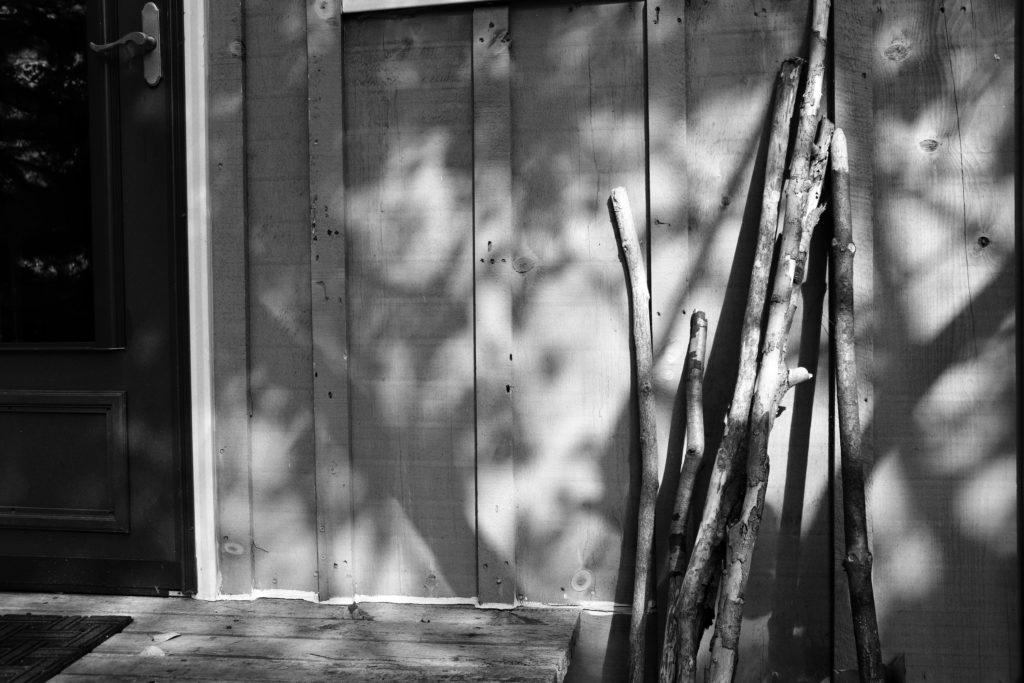
I encourage people to consider spending some time at the Hermitage with their camera (which is often simply grabbing your phone) and head out with an expectant heart and open eyes and see what God might have to show you.
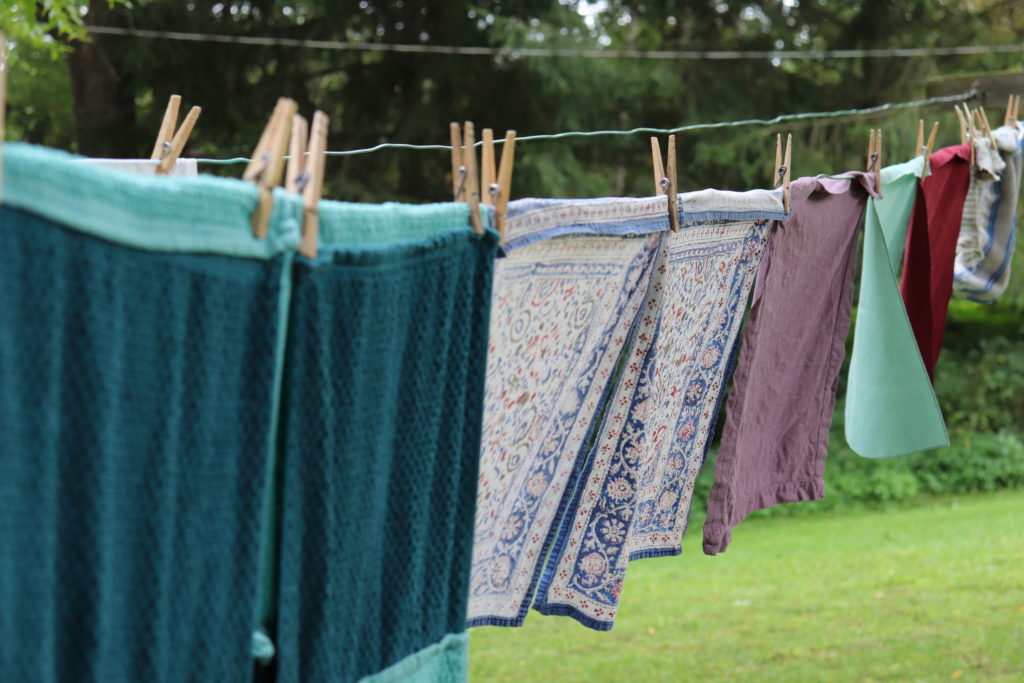
Disorientation and Welcome – by Kevin Driedger
I like to plan. I appreciate having an idea of what is going to happen and I presume others appreciate these things too. I want to put people at ease so that they will know what is going on and what to expect. I believe it is a welcoming and hospitable thing to do.
And yet, I also know that my preference to plan and to anticipate what will happen can muffle my ears and blinder my eyes to what is actually going on around me. Expecting one thing to happen means I am not willing to engage when some other thing happens.
Feeling disoriented is, well, disorienting and it is not comfortable. It leaves me vulnerable to the unknown. I experience this also on behalf of the guests who come to visit The Hermitage. For some retreatants this is their first time here and it may be their first encounter with deep silence. A key part of my job of welcoming is to orient them to how things happen here and what to expect – to remove their own disorientation and dis-ease (whether it is real or projected.)
I remember a pilgrimage my wife and I took to Ireland. Travelling is hard for me, because there are so many unfamiliar things and all my planning can’t prepare me for them all. At the first gathering of our pilgrimage group our leader named the disorientation that many (all) of us were feeling, and the importance of accepting and living in that disorientation. That disorientation is necessary if there is going to be any kind of reorientation.
And so, I need to learn to allow some space for disorientation for our guests and for myself. The next time a guest arrives late for Saturday morning centering prayer after we’ve finished the introduction, (although I feel uncomfortable with the individual’s possible disorientation), I will pray that this be a time of reorientation – both for the guest and me. I will pray that we both are able to simply receive God’s reorienting welcome.
The answer to every prayer is the same – by Naomi Wenger
This post is part of a series commenting on the ten Practices of the Hermitage Way Keeper. This article is Part 2 of a series on Prayer. As a community, our first practice is prayer.
“Practice 1: Those who choose to keep the Way commit to engage in a daily prayer practice. This practice will include silence, meditation on scripture, intercession and affirmation. Morning Prayer and Evening Prayer liturgies from The Hermitage or other sources may be used.“
The answer to every prayer is the same
It may come as somewhat of a surprise to us, but the answer to prayer is always the same. At least that is what Jesus teaches the disciples about prayer. Let’s look at Luke 11:9-13.
“So I say to you, Ask, and it will be given you; search, and you will find; knock, and the door will be opened for you. For everyone who asks receives, and everyone who searches finds, and for everyone who knocks, the door will be opened. Is there anyone among you who, if your child asks for a fish, will give a snake instead of a fish? Or if the child asks for an egg, will give a scorpion? If you then, who are evil, know how to give good gifts to your children, how much more will the heavenly Father give the Holy Spirit to those who ask him!”
Here, we note that the answer to every prayer is the same: the Holy Spirit. No matter what is asked for, the resultant gift is God’s Spirit. If we come expecting a new job, we may get one–or not. But because we ask, we will receive the Guide and Comforter to help us. We will certainly be changed if the target of our prayer is God and not our need. God already knows what we need and is delighted to give us what we need if we seek for God. (cf. Mt. 6:25ff)
Now this may seem a little unfair. It seems that we are instructed to be persistent in prayer, asking for what we desire and the result is that we will always get the same thing. What about our desire? Don’t we ever get what we want because of our prayer? Jesus taught his disciples that “If you abide in me and my words abide in you, ask for whatever you wish, and it will be done for you.” (John 15:7) The conditions placed on that wishing are huge. “If you abide in me.” “If my words abide in you.” These are the conditions that govern our will so that whatever we wish will be done. J. Neville Ward in his book, The Use of Praying, puts it this way, “To pray in the name of Christ means to share his way of looking at life. And this must gradually change the desires we want to lift up to God, and ultimately our whole life of desire. We cannot continue our ‘learning Christ’ within the worship and teaching of the church and not expect inner change to begin. The place where that change first makes itself felt is our life of wanting.” So, we do get what we want, but what we want is first completely transformed into what God is already wanting.
Another question we might raise is “when will God answer my prayer? It seems I have prayed for the same thing for years. Is God listening?” And to that question the answer is an unqualified, “Yes, are you?” Change is the fruit of prayer. If you have prayed for the same thing in the same way for years, something is wrong because you are not changing. I am not saying we should not be persistent in prayer. The gospels make it clear that persistence is expected in prayer. In Luke (11:1-13), we note that Jesus assumes this approach with his disciples. He tells the disciples to make petitions or supplications often and directly.
Practitioners of supplication have noted that prayer is entering into God’s master plan God’s way. Does prayer make any difference? Yes, when you become available to be used as part of the Kingdom, the strategy can change. More hands make changes in the work roster. There is no scientific causal link between events in the universe and one’s prayer. However, there is a qualitative difference in the way energy is allocated. When your intention is for the good of another, it cannot also be for that person’s downfall. Your agreeing with the cosmic power of God for what is at stake in the world cannot be used in any other way. There is a kind of cumulative calculus that is not countable. This does not produce visible results like magic tricks—if you pray a certain way, there will be a particular, and immediate, result. Rather, you love others by holding them in the loving gaze of a loving God. By paying attention, with God, you increase the attention paid.
Paul, in Ephesians 6:18-20, urges that prayer be constant. He assumes that the Ephesians’ desires are for what God wants. He lays his assumption bare in the first sentence, “Pray in the Spirit at all times in every prayer and supplication.” There is no simple formula to accomplish praying in the spirit. As in, “in the name of the Father, Son and Spirit, AMEN.” To pray in the Spirit is to be in the Spirit, to plunge into a relationship that swallows one up and to be there, praying as the Spirit would pray.
When we pray each day at the Hermitage, we remember that to be used as pray-ers is simply to pray. And in that prayer we listen to how God might be calling us to actually become part of someone’s “answer.” To do what I can do, is to be part of prayer. To offer up what I cannot do, is to be part of prayer. In fact, all we can ever do is be part of prayer. Mr. Ward again helps us understand, “Truly Christian prayer is part of the eternal prayer and sacrifice of the great High Priest. Our prayer is Christian prayer as we enter into the self-offering of Christ, as we want to be part of God’s purpose and channels through which [God’s] love can act.” This is the central task of prayer, to ask constantly, “Am I part of God’s purpose and a channel through which God’s love can act?”
“I do desire to understand a little of your Truth which my heart already believes and loves. I do not seek to understand so that I may believe, but I do believe so that I may understand; and what is more, I believe that unless I do believe I shall not understand.”
-Anselm (1033-1109)
Supplication: “God is Enough” – by Naomi Wenger
The Hermitage Way is a group of folks who commit to keep ten practices for a year at a time. This article is one of a series of articles on these practices.
Practice 1: Those who choose to keep the Way commit to engage in a daily prayer practice. This practice will include silence, meditation on scripture, intercession and affirmation. Morning Prayer and Evening Prayer liturgies from The Hermitage or other sources may be used.
Supplication: “God is Enough”
There are many words used for prayer: adoration, confession, thanksgiving, supplication, intercession, pleading, etc. Some of our prayer, perhaps the greater part, should be simply acknowledging God. These kinds of prayers are adoration and thanksgiving; wonder-filled expressions of our awareness of God at work in the world. But, we often think of prayer as asking. That is understandable since the original meaning of the root of the word “prayer” (precarius is Latin meaning to obtain by entreaty or earnest asking) is to beg, to ask. So, it is appropriate that we pray for others or ourselves. We ask God to act in some way to benefit those we love and serve. This is called intercession or supplication.
Supplication is a prayer of deep trust and awareness. The stories of Elijah in I Kings help us when we think on this deep kind of prayer. Elijah the prophet of the Lord, lives during a particularly troubled time in Israel’s history. King Ahab is a bad king, rebelling against God’s rule in his own life and leading the people astray. He is married to an equally bad queen, Jezebel, who opposes the worship of God and promotes the worship of the local god, Baal. God sends a warning to his people in the form of a drought, the ensuing famine and, probably most galling to Jezebel, a prophet who is listening to God.
During the famine, God sends Elijah to live with a widow in Zarephath, and to eat at her table. God supplies her with a never-ending oil jug and a bottomless flour jar so that they will not starve. However, during the famine, the widow’s son falls ill and dies. Elijah, never one to mince words with God says, “O lord my God have you brought calamity even upon the widow with whom I am staying, by killing her son?” A rather direct question and accusation! Nevertheless, Elijah presents the facts to God, concluding his prayer with, “O Lord my God, let this child’s life come into him again” (17:20-21) thereby acknowledging that only God can change the circum-stance of death. This is a humility born of experience. And God restores the boy’s life.
A few weeks later, Elijah is sent back to Ahab with the news that it would rain again after three years of drought. Ahab agrees to a challenge between God and the prophets of the Baal. The prophets fail but God is revealed in a show of firepower. Elijah’s simple prayer of supplication is of interest, here, “O Lord, God of Abraham, Isaac, and Israel, let it be known this day that you are God in Israel, that I am your servant, and that I have done all these things at your bidding. Answer me, O Lord, answer me, so that this people may know that you, O Lord are God and that you have turned their hearts back.” (18:36-37)
The motivation behind Elijah’s prayer, “so that this people may know that you are God,” gives us the clue to Elijah’s target. He was not praying that the people would follow him, that they would give him a raise, or that they would make his life easier. No, he wanted them to acknowledge God; be aware of God’s powerful presence, worship God. God and God alone was Elijah’s target. It is important to not overlook the obvious point that suppliants trust that God will provide for their desires.
But what, you may ask, if God had not restored the boy’s life or burned up the sacrifice and the altar? This is a very important question because it brings us to the significant realization that the outcomes or the “answers” to the prayer are not the measure of God’s action. In our Elijah stories, God is acting through Elijah, through the widow, through fire, through weather formation, and Elijah is listening. Elijah is aware of God’s action. He recognizes God’s power. He looks to God to do what God is already doing and will continue to do. He is part of the plan because he says, “yes” to whatever God does.
The ancient Chinese poet, Chuang Tzu, wrote:
When an archer is shooting for nothing He has all his skill If he shoots for a brass buckle He is already nervous. If he shoots for a prize of gold He goes blind Or he sees two targets – He is out of his mind! His skill has not changed. But the prize Divides him. He cares. He thinks more of winning Than of shooting – And the need to win Drains him of power.
Our aim in prayer is always God. Not knowing about God or getting something from God but God, God’s self. We may think our target is what we want, but in all true prayer, what we aim for is God. What we want is the motivation for shooting out a prayer, but focusing only on what we want can skew our aim at God dreadfully. To adapt the words of the poet, the need to receive drains our prayer of power. But to be open and even vulnerable to receive what is being provided, we need to fall for God again and again. If our prayer brings us to God, that is sufficient. God is enough.
“Fascination is the oldest form of healing” – by Naomi Wenger
A few years ago, I was hiking in the Columbia River Gorge area of Oregon/Washington. After a two-day hike, I drove to many of the waterfalls along the gorge. I was tired from hiking with my pack on, my feet were probably sore, so at the last of at least a dozen roadside stops to see a waterfall, I stayed well back from the falls, choosing to look on from half-way there. Down the trail, where the falls were soaking onlookers, I noticed a flash of red. It kept darting into my field of vision and retreating. I focused my camera on the spot and saw the pure delight of a young boy in a red jacket daring the falling water to get him wet. He charged and challenged, roaring at the thundering fall, and then ran away with a sylph-like quickness to the shelter of a protruding rock. He got very wet. His joy at provoking the huge waterfall lifted my spirits. I can’t say it healed my aching feet, but I revel in the memory of his obvious delight.
The old tales tell of a couple who left their homeland to find out where God would take them – “to the land that I will show you.” A shepherd stopped along a rocky path to watch a bush that was aflame but not consumed by the fire. “I Am” spoke to him out of that bush—a sound he may have missed if he was not fascinated by what he saw. A beloved woman watched as her friend was assassinated, then stood by as other friends lovingly laid his body in a tomb and rolled a stone in front of the entrance. She waited, wondering what would become of her loved one; what would become of her? On the third day, she was the first observer of that empty tomb at the resurrection of Jesus. Fascination.
Carl Jung author of the title statement of this article, continued that thought elsewhere with, “the world is the oldest form of fascination.” When have you last been fascinated by the world? Daily rituals and sightings bring joy to our hearts. How many beautiful sunsets have we photographed only to forget exactly when they occurred? We “ooh” and “aah” over a delicious cake, asking for the recipe. We watch hawks soar, grin at young rabbits as they flop instead of hop, gawk at tiny birds who open gigantic mouths to be fed, and coax darting hummingbirds to our back yard feeders. When we travel, the beauty in others’ faces or the colorful jumbles of market stalls invite our attention. It is no surprise that the things of the earth delight us. We are made for this planet home and we should find it interesting.
But we can become so inured to its charms that we begin to think that the insects, the weather, the unwanted plants (eg. weeds), the animals that invade “our” space are “other” and despicable, and then disposable. When this happens, we have failed the exam. Our work is to live well in the home we have, at peace with all of the other creatures we live among. We are not commanded to be destroyers but to “tend and keep” the earth. The ready antidote to this failed attitude is fascination.
I used to be extremely bothered when the spring invasion of ants began in my house. First at the back door, then in the dog dish and finally on the countertop. It was a regular routine and I squished and squashed ants until they outnumbered the minutes in the day I had to spare for them. I considered poisoning them by placing deadly granules around the foundation of the house. Then, I got curious. These ants were not all from the same colony—they were different sizes and colors. Some were uninterested in human food. Others were attracted to the fat in the dog food or the oily fork left on the counter. Cheese crumbs were giant treasures to the fat-loving ants. Other ants would apparently do anything for sugar. Some of the ants entered next to the back door. Some came in through the garage. Others have mysterious entry points. They only “talked” to the ants in their own families, completely ignoring ants that did not belong to their tribe. I did a little research and found out that most insects, birds, fish, amphibians, reptiles and animals eat ants. Ants are a food staple of my environment. They are also one of the necessary decomposers in the soil, helping to keep the soil fertile and garbage-free. Ants are great sources of protein and a food delicacy in parts of the world. With a little bit of fascination, I found that I was captive to a mistaken idea that every ant is a “bad” bug. In fact, ants are generally “good” and only destructive when there is already something damaging a structure, like excess moisture.
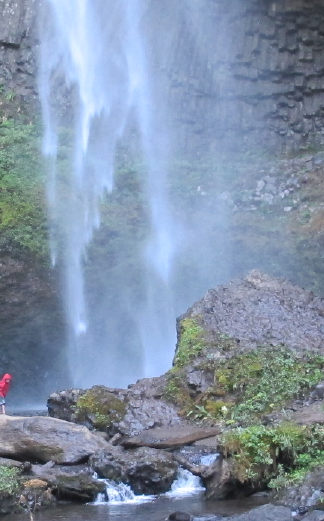
I have found ways of protecting the dog’s food (put it in a shallow pan of water), discouraging the fat ants (never leave unwashed dishes on the counter) and the honey jar is now permanently on the counter away from the outside wall of the house. Ants come and go, preening their sleek bodies with their antennae, greeting one another with an examining embrace, and trekking far distances across the floor, looking for food. These helpful creatures are no longer my enemies but sources of entertainment. Sometimes, I still get frustrated by the sheer number of ants that can enter my house in a day. Other times, I can be still enough to let them delight me.
Delight, attentiveness, fascination – these are doorways to healing rather than harming the world.
